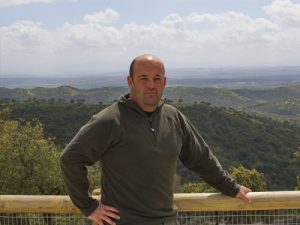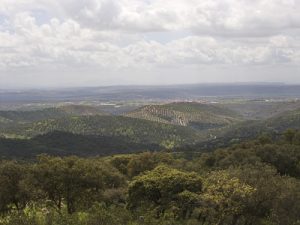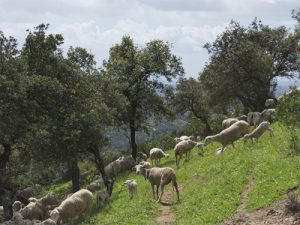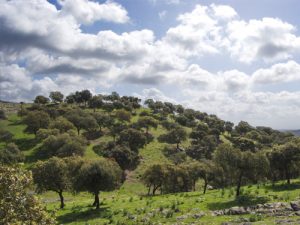The SAT “Pastos de Pontones” is an organization of ecological sheep farmers which collaboratively bid together for renting public and private pastures of Sierra de Segura. After obtaining the tender, this group distributes the land plots among its partners for individual exploitation. This management engages in resolving conflicts; negotiating the price of pastures; and fostering a spirit of cooperation and loyalty among farmers.
Area: 30.000ha
The SAT “Pastos de Pontones” manages the pastures of its partners in mountain areas. Most of the farmers engage in transhumance activities with the rearing of organic sheep (segureña breed). In winter the sheep go to pastures and in summer they are reared on plots in the Sierra de Segura. There are many public and private pastures. Before the SAT, access to these pastures was complex due to unfair competition to the best locations for grazing and ac- cessibility. This generated conflict and a spiral of price growth that hindered the viability of the activity.
When the SAT was established in 2005, the objective was to jointly participate in the tendering for access and use of public and private (more expensive) pastures in Sierra de Segura. Previously, a farmer undertook this activity individually. This change in practice was undertaken in order to reduce unfair competition that was taking place amongst farmers, which generated many conflicts and increased the price of the land.
The SAT distributes the pastures under a county system (plots), trying to locate each farmer in the areas that they traditionally had been exploiting until the constitution of the SAT.
The SAT is also responsible for the maintenance of common roads, ponds and fences. Each farmer pays according to the size of his / her herd. The SAT only manages the land, the management of animal health and marketing are initiated through other cooperative structures.
Initially, the farmers had free access to the areas they preferred. However, in order to avoid over-grazing, the “coun- ty system” was established by statute, and each breeder occupies his place (county) during the summer grazing period.
In order to ensure farmers adhered to these regulations, an inspector was initially appointed in order to verify each farmer remained in his county; and to validate the size of the herd.
The possibility of entry of other breeders or SATs has been resolved with agreements with local authorities and other SATs in the area. It was important to manage new entrants, so the SAT maintains a reserve stock of pastures to offer them to new farmers in the area, as well as to ensure adequate supply in the aftermath of a fire or drought. The collective management of the communal land has also generated a spirit of collaboration, now there is a spirit of loyalty and help among farmers in the area.
One of the greatest successes of this SAT is the establishment of the county system. Each farmer individually man- ages the pastures assigned to him / her, which is a condition of being certified as an ecological / organic producer. The legal structure is rather simple, but it is necessary to define very well the statutes: who can enter, how to man- age the rights for CAP payments, county system or open system, etc.
Another success is the reservation system that guarantees the growth of the SAT - the management of grazing admissibility coefficients and CAP aids, risk management and the controlled entry of new farmers.
The advice and support of the Agricultural District Offices (OCAs) and the Farming Organizations have assisted in finding the best solutions to resolve these issues.
It is important to know how to sell ideas and deliver tangible benefits. Therefore, it is necessary to develop skills such as leadership, communication, negotiation and conflict management.
It is important to develop a cooperative attitude, sharing experiences with other farmers. Furthermore, it is impor- tant to have an open mind, sometimes it is hard for us to visualize the benefits of a form of cooperation before under- taking it, it is necessary to work the cooperative conscience and the benefits that can be obtained by undertaking the activity.
Advice/Recommendation
"It is essential to learn from others who have already started the journey you are going to start. Investigate, get opinions until you find a model that resembles what you’re looking for, to know what to do and how to do it.
You should put trust in your colleagues, if you are suspicious it is better not to cooperate."
Queries/Questions
- Do you know other potentially conflictive situations that could be solved with a collective management of resources?
- Are you willing to hold many meetings to reach agreements, always taking into consideration the needs of all parties?



 Čeština
Čeština  English
English  Français
Français  Deutsch
Deutsch  Italiano
Italiano  Slovenščina
Slovenščina  Español
Español 




